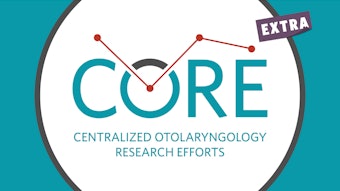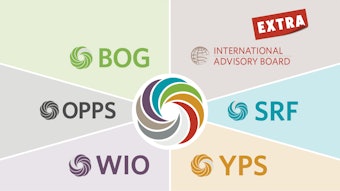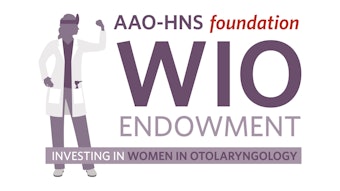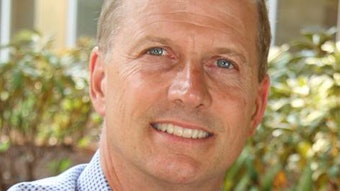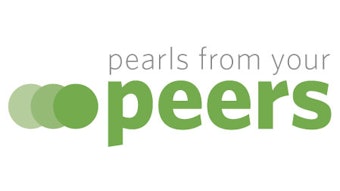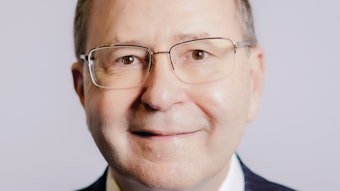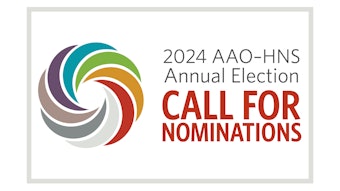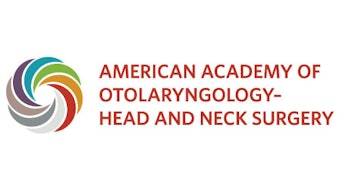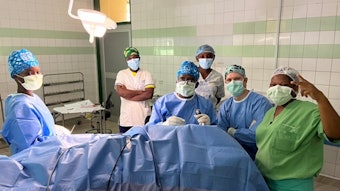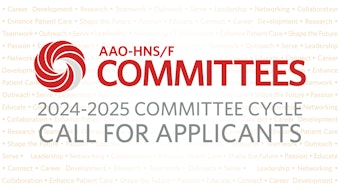Paths to Otolaryngology Leadership: Part II
Four members share their motivation for giving their time, expertise, and commitment to the AAO-HNS/F.
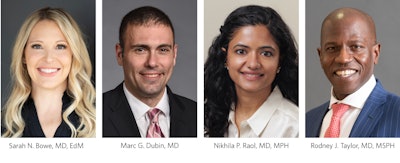
Dedication to Practice in Varying Ways
Dr. Bowe: I’ve really enjoyed the opportunities I have had working with the journal, Otolaryngology–Head and Neck Surgery and OTO Open. I started as a reviewer in 2015. It was funny because when I started reviewing, a previous program director, who still is in the military but is getting close to retiring, was a reviewer for many journals. He said, “Never turn down a review.” I think that's how you kind of move along, learn a lot, and then people know that they can rely on you. I do my best to turn in good work in a timely fashion, keeping the review process moving forward. I will say honestly by being a reviewer, I have become such a better scientist and clinician scientist.
I was inspired by the paper, “How to Review Journal Manuscripts,” by Richard M. Rosenfeld, MD, MPH, MBA, former Editor in Chief of Otolaryngology–Head and Neck Surgery. (There is also a video presentation available to those interested in becoming a reviewer). I basically framed all my reviews off that. I kept a system for how my review was done so there is template any time any editor asked me to do it. I was able to hone in on a formula that connected with other aspects of my work. This has become a good framework for approaching the problem and planning for projects. As a reviewer, I am able to appreciate what happens on the other side of papers I submit. I have become a better writer of my own manuscripts because I know what reviewers are looking for.
I had residents that I taught through the review process who have gone on and then become associate editors at other journals. It's been really nice to see the people that I've worked with really grow because that is a reflection of me. I love giving back and seeing the people behind me do better than I did.
Dr. Dubin: I am often asked by my partners in practice why I am involved in the AAO-HNS. My answer is simply that the Academy is THE voice of our specialty and the decisions that are made affect each one of us. Political and payer advocacy, education, consensus statements are all priorities for the organization and the decisions shape all our professional careers. It’s not that “someone has to do it.” I want to represent my professional demographic to assure that our voice is heard. I am unbelievably impressed with the work of the organization and am proud that I can serve and help the entire specialty. To date, it has been some of the most rewarding work I have done.
Dr. Raol: I love the long-lasting relationships that we create with our patients while still being a surgical specialty.
Dr. Taylor: I love my current position as chair at the University of Maryland, in West Baltimore. I have the privilege of watching and facilitating dreams come true. My passion is to support students even when some of the challenges are difficult and rocky and join them to celebrate the joyous times. Previously, as associate chair of research, I was able to be involved with clinical, translational, basic science—working with trainees and faculty. I am also a cofounder of the nonprofit, MD ENT Abroad, which works with otolaryngology issues around the world. The nontraditional scope allows us to extend our capabilities as providers in working with regional facilities. Medical students and residents are able to join in this work and teach others. I started after the hurricane in Haiti. My work with providers and patients underscored the necessity to offer services in a broader capacity. The vision to engage globally evolved from there. I am also honored to work within the scope of diversity, equity, and inclusion at the UMD Medical Center as well as the full school. Our focus on implicit bias in healthcare has led to conversations to level barriers that exist around the care of marginalized patients, especially in Baltimore.
Commitment to Outcomes
Dr. Taylor: Otolaryngology has allowed me to practice at a high level. The ability to connect with patients longitudinally inspires me. I am able to connect with patients and share in their journeys. Otolaryngology allows doctors to be stewards and caretakers of those vital functions. It is a unique honor to intimately engage with the health of patients. Undoubtedly inspired by patients' tenacity and resilience, I am elevated by these patients.
Dr. Raol: It's a marathon, not a sprint. I'm learning to move at the pace that fits my career and personal goals while working toward my bigger goal of moving the needle in our field, even if just a smidge. Your career does not have to mirror anyone else's.
Dr. Dubin: The old saying is “affable, available, and affordable.” Affable isn’t my strong suit, and I can’t control the cost. Therefore, I stuck with what I was told very early on by my chair Harold C. Pillsbury III, MD, when I was a resident, “be available.” There is no better advice for success. Early in your career, don’t say no because if you do, whoever is asking will find someone else and never ask you again. Eventually you can be selective—the key for me is now figuring out how to say no to people at this point in my career. Dr. Pillsbury never told me when that was ok! I am very proud that I have been able to play a role in the formation of the Otolaryngology Private Practice Section (OPPS). However, the real credit to the formation of the Private Practice Study Group (PPSG), which is now the OPPS, belongs to James C. Denneny III, MD, Eugene G. Brown, MD, RPh, Ken Yanagisawa, MD, William Blythe, MD, and others who worked behind the scenes to get the plane on the runway. I just got it in the air and am looking forward to seeing where it winds up. The OPPS is set to provide a forum for the majority of AAO-HNS members who are in private practice. It will advocate for and provide a clear pathway for leadership in the Academy for private practitioners. I am always happy to serve in whatever other capacity I am needed but will forever be most proud of being afforded the opportunity to assist in the creation of the OPPS.
Dr. Bowe: I've really enjoyed my committee work, in particular the Patient Safety, Quality Improvement, and Diversity and Inclusion Committees. When I was starting in General ENT practice, I ended up being drawn to patient safety, quality improvement work that focuses on education and teaching residents. There was not a lot of literature or resources, so I sought other individuals who had done work in that space to learn from and begin building off their ideas. I was drawn to diversity and inclusion as I studied who's able to access our specialty from a residency selection standpoint. Women in otolaryngology have inspired me. There are so many names that come to mind that have opened up the specialty and that intentionality has allowed us to do so much.
Connection to Networks
Dr. Raol: I have been able to make connections that have most certainly helped me reach the type of career that I would not have imagined otherwise. In addition, I feel that I have been able to champion causes that are important to our patients, learning much about advocacy along the way, and I have been able to give back to some of my younger colleagues by mentoring them in the same way in which I was shepherded into the Academy early in my career. Reach out to anyone you know who is in a leadership position and ask where they could use your help, or even someone you don't know! I've always found our leaders to be very welcoming to anyone interested in dedicating their time to the organization. The most important thing is to show up and demonstrate interest and commitment. Having multiple mentors and sponsors is a gift, and you can learn something from each of them to help craft the career that best fits your talents and your passion.
Dr. Bowe: Be open and available. Have conversations. Listen to how others have navigated their paths. You don’t need to take the straight road, be open to a different experience. It's nice to get outside input to reflect back what you're thinking. I think the biggest thing is to literally just show up. Find something you are passionate about, willing to put work into and GO! If you're passionate about a topic when you submit your committee application, then you're potentially more likely to be considered because you've already made connections with individuals when you have shown up. It seems to be a virtuous cycle of people knowing that they can rely on you and then knowing that you'll provide a good product. So, so many of the opportunities I have had were from having relationships and networking connections.
Dr. Taylor: One of the things that I am in awe of is when you connect with others and share—the lens that others see through and experience life through is exhilarating. Your learning happens often and organically. Have fun. You can be serious, but you are committed to the idea that you are enjoying what you are doing. Lean into what you are doing. Be deliberate and mindful. Expand upon and cultivate what you enjoy. Gregory T. Wolf, MD, inspired these words.
Dr. Dubin: I would ask anyone, particularly in private practice, to reach out to all the private practice leaders they encounter. Email anyone, stop anyone at the Annual Meeting. Ask advice and just as important, listen. Do the work that is asked of you in a timely manner and be available. One of the primary missions of OPPS is to find and mentor the future leaders of our Academy. I am more confident than ever that the pathway to leadership will be wide open to those who want to be involved and put in the time. It is difficult to navigate any big complex organization without sponsorship/mentorship. Unfortunately, I did not have a mentor in the AAO-HNS for the first two-thirds of my career and for that reason found the AAO-HNS leadership a mysterious thing to penetrate. Interestingly, I figured it out on my own at about the same time as I was fortunate to stumble upon Dr. Brown and Ronald B. Kuppersmith, MD, MBA, who have been invaluable to me in this regard.
These four members represent just a small fraction of those who give of their time, expertise, and commitment to the vision and mission of the AAO-HNS/F. It is the wealth and breadth of the collective efforts of the Academy’s membership, which is consistency demonstrated by a dedication to quality patient care and advancement of the specialty, that have contributed to the 127-year remarkable legacy of the AAO-HNS/F, with only more to come in the future.
For more details and information about your own path to leadership within the AAO-HNS/F, go to https://www.entnet.org/get-involved/.
